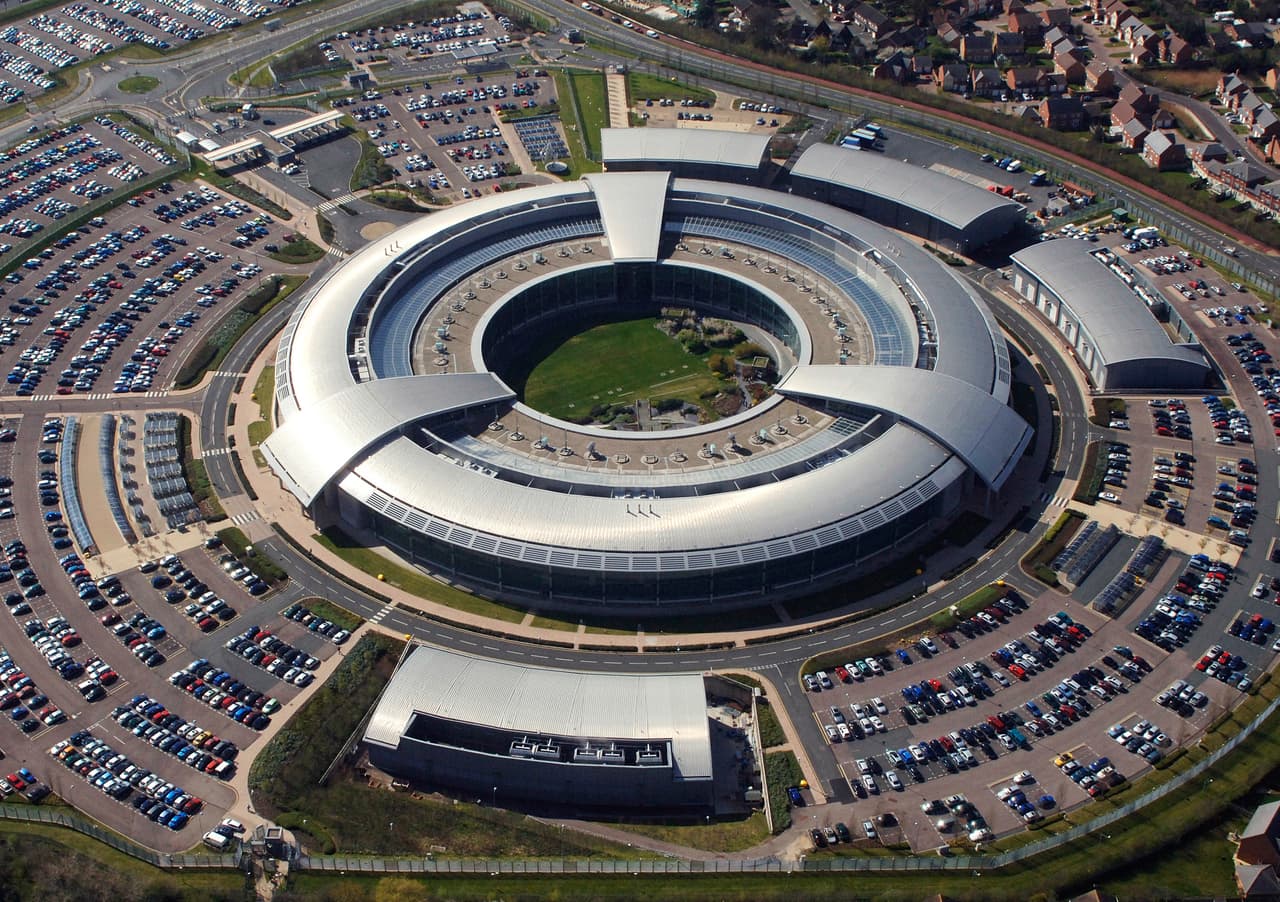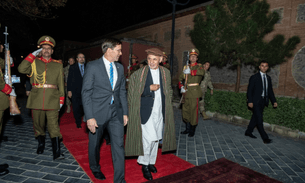
GCHQ intel sharing for drone strikes may be ‘accessory to murder’
In the loop? Officers at GCHQ have reportedly shared Taliban commanders’ locations with the CIA
(Photo: Ministry of Defence
UK intelligence officers may be assisting in murder or war crimes by sharing information with the CIA that leads to deaths in Pakistan drone strikes, a London court heard this week.
Pakistani tribesman Noor Khan, whose father was killed by a drone strike last year, has launched an application for a judicial review examining the UK’s alleged complicity in the CIA’s drone campaign. If Khan’s case is successful, judges will examine whether GCHQ officers can legally share information on the location of individuals if they believe this may be used to target them with drone strikes.
An ornate, book-lined courtroom at the Royal Courts of Justice was crowded with activists and government lawyers on October 23 and 24 as the first British legal challenge to the drone campaign got underway. Khan’s case against foreign secretary William Hague is backed by Reprieve and Islamabad-based lawyer Shahzad Akbar, and is funded by UK legal aid.
Related story – Evidence in British court contradicts CIA drone claims
The British government has hired a trio of highly respected barristers to fight its corner, including first Treasury counsel James Eadie QC, international law expert Professor Malcolm Shaw QC, and criminal law specialist Andrew Edis QC.
Press reports indicate the UK government shares intelligence, including the location of suspected militant commanders, with the CIA. In 2010 the Sunday Times quoted ‘insiders’ claiming that GCHQ has better interception networks than the CIA in south Asia, and had shared information about the locations of al Qaeda and Taliban commanders in both Afghanistan and Pakistan. GCHQ told the Sunday Times all intelligence sharing was in ‘strict accordance’ with the law.
But the government has never officially confirmed or denied sharing intelligence for drone attacks.
‘There’s a well known, well acknowledged drone programme, there’s a list of people the CIA wants to target as part of that drone programme. A GCHQ officer comes into information about the location of a person and passes it to the CIA officer, we say there’s a very real chance of a crime being committed,’ Khan’s barrister Martin Chamberlain said.
Lord Justice Moses, one of two judges who will decide whether to order a judicial review, commented that if individual officers could be held culpable, then so potentially could the foreign secretary, since the decision to share intelligence rests with him.
– James Eadie QC
While soldiers who kill as part of an international armed conflict are protected from prosecution by combatant immunity, it’s unclear whether the turmoil in Pakistan’s volatile tribal belt constitutes a war, Chamberlain said. This could make the killings unlawful, and British officials who shared intelligence leading to those killings would be guilty of accessory to murder.
Even if this is held to be a war, the drone strikes could break international humanitarian law by exceeding what is ‘proportionate and necessary’ – leaving officers who share intelligence at risk of assisting crimes against humanity or war crimes, he added.
National interests
But holding a judicial review would mean delving into issues of national security, defence and diplomacy and could harm Britain’s national interests, Hague’s lead barrister James Eadie QC told the court. In particular, it could affect relations with the US, ‘our closest ally, whose importance to our national security I assume needs no stating in front of this court,’ he said.
Effectively English courts would be forced to rule on the legality – or otherwise – of the CIA’s drone campaign. ‘It would be amazing if the American government was sanguine about an English court saying it’s guilty of murder,’ he said.
Examining the legality of drone strikes would also mean exploring whether the Pakistani government gave its consent, which ‘may be controversial in Pakistan’: this too could have serious diplomatic and international consequences, he explained.
A judicial review would be ‘about as controversial and as potentially damaging as it’s possible to conceive,’ Eadie said.
A review would also mean revealing top-secret intelligence policies to the court – and since judicial review proceedings can’t include closed court materials, this would present severe practical problems, Eadie said. Intelligence policies and practices are scrutinised by parliament through the Intelligence and Security Committee, he added: a judicial review would see the courts ‘trespassing’ on parliament’s territory.
There are ‘jolly good reasons’ for not publishing policies relating to the intelligence services, he concluded, handing over to Andrew Edis.
Working from just a few A4 pages where the other barristers had had the judges leafing through enormous binders of case law, Edis scrutinised the chapter and verse of the criminal laws cited in Khan’s application.
‘Notionally, if someone’s to be accessory to a murder, it must be an illegal act in [the murderer’s] own country,’ Edis told the court. In this case, killing alleged militants is not illegal in the US, so therefore there is no ‘murder’ to which UK intelligence officers could be accessory, he argued.
Challenged by Lord Justice Moses as to whether it would be considered murder in Pakistan, Edis replied that the drone pilots are in Nevada, not Pakistan.
It is not the job of the English court to ‘consider whether a foreigner who commits an act of killing abroad is or isn’t guilty of murder’ – and this would in turn prevent the court from deciding whether a British citizen was an accessory to that murder, he said. ‘Nothing in the English law gives this court the power to decide what’s a murder in Waziristan or America.’
The application hearing is expected to conclude on October 25, and the judges are expected to return their decision in the coming weeks.


